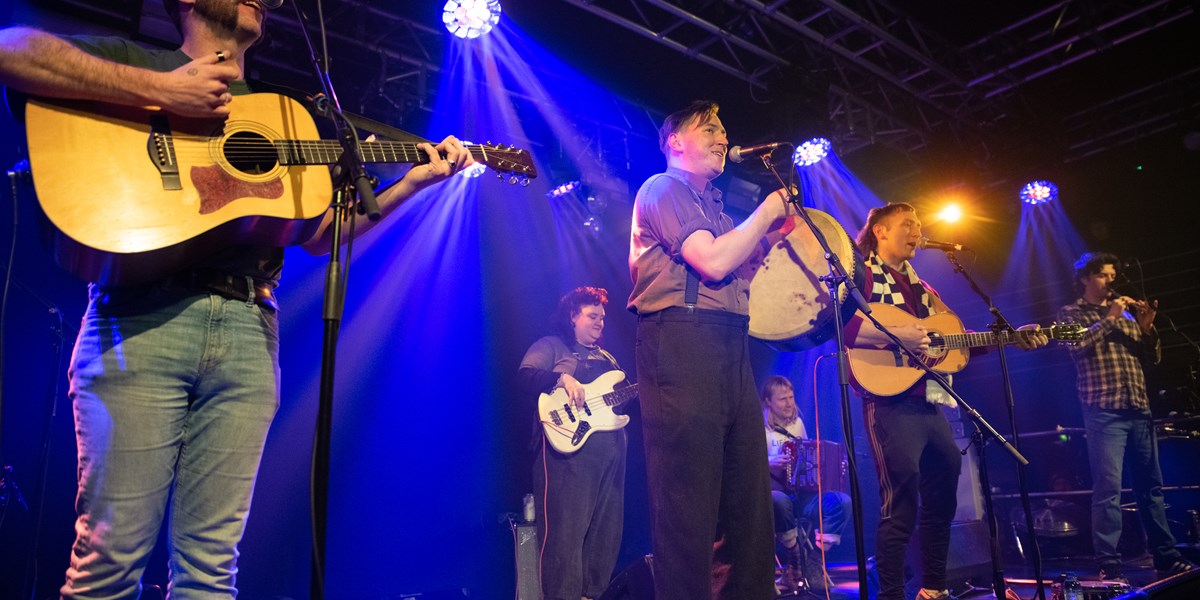Tuesday, March 12, 2024
The Mary Wallopers: Dundalk and disorderly
By Emma Rycroft
Annoying RTÉ, dissing the rich and staying true to Dundalk: Charles Hendy tells Emma Rycroft about The Mary Wallopers’ rise to the top. “Throughout my enjoyment of music, I’ve liked stuff that was probably done wrong,” he confides

The Mary Wallopers (photo: Ryan Warburton)

Register now to continue reading

Thanks for visiting the Songlines website, your guide to an extraordinary world of music and culture. Sign up for a free account now to enjoy:
- Free access to 2 subscriber-only articles and album reviews every month
- Unlimited access to our news and awards pages
- Our regular email newsletters

